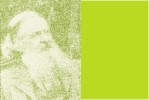Josué
Cândido da Silva
josuecandido@uol.com.br
PUC - SP - Brazil
FROM THE INDEFINITE COMMUNITY OF INVESTIGATORS TO THE COMMUNICATION COMMUNITY
ABSTRACT
Both Karl-Otto Apel and Jürgen Habermas have tried to found ethics
in terms of philosophy of language, which they called "discourse ethics."
Such an attempt aims at resuming the Kantian concept on the transcendental
conditions of possibility and validity of science by means of discerning
the transcendental status of language and by means of the linguistic community
as well. According to Apel, this program would have been initiated by the
semiotic transformation of Kant's transcendental logic operated by Charles
Sanders Peirce. According to Apel, Peirce would have done such transformation
while creating the concept of an "indefinite Community of investigators",
in which converges, on the one hand, the semiotic postulate of a supra-individual
unit of interpretation, and on the other hand, the postulate inherent to
the logic of research of an experimental assurance "in the long run."
Therefore, Peirce transcends the Kantian distinction between theoretical
and practical reason, or between regulatory principles and moral postulates,
since the unlimited cognitive process itself, as a real social process,
is at the same time an object of the logic of ethics. However, Apel, after
having built the discourse ethics upon the concept of communication community,
draws way from Peirce by placing the regulatory principle of communication
community no longer on the research logic of the scientific community, but
rather on the idea of an unlimited interpretative community, which implicitly
presupposes that any and all argumentative individuals are ideal instances
of control. This article focuses on Apel's change.
KEYWORDDS: Discourse Dthics, Apel, Pragmatism, and Communication Community.
Center
for Pragmatism Studies
Philosophy Graduate Program
Departament of Philosophy
Pontifical Catholic University of São Paulo - Brazil


